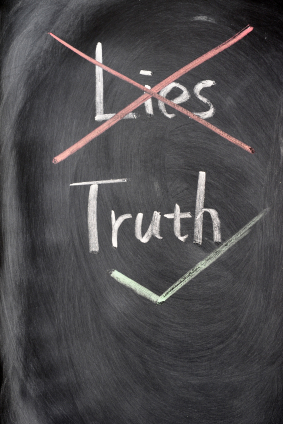This week I had the privilege of connecting with a long distance friend who is going through an extremely painful time. There seems to be no good news. Everything that could go wrong does go wrong.
Months of this have brought exhaustion, discouragement, despair and hopelessness.
And many of us, when we find ourselves in those situations, become more susceptible to the lies of the enemy.
So I’ve been thinking about the difference between conviction and condemnation – and there is a basic truth I come back to time and time again. This is not a theological treatise. It’s a general rule of thumb that I believe is true.* 
The Holy Spirit convicts of sin. We know we’ve done something that needs to be taken care of. Conviction, in my experience, is specific and it relates to the action and not to your identity. You told a particular lie, you cheated a particular person, you were cruel to someone you know. You did a particular thing that you know was wrong.
When we bring this to God and others, and take appropriate actions to make things as right as we can with another person, the relational distance between us and God is taken care of and the Holy Spirit reassures us of that.
The goal of this type of conviction is the restoration of your sense of relationship. It creates closeness and intimacy, freedom and joy. It is based on truth.
Condemnation, on the other hand, is from the enemy. He may try to disguise it as conviction but condemnation tends to be general rather than specific and it attacks who you are rather than what you did. “You’re a liar.” “You always destroy relationships.” “You’re an awful person.”
Attempts to earn your way out of condemnation (“I’ll try to be better”) don’t work. Acceptance (“Everything really is my fault.”) leaves you stuck in despair. And confession can seem to dig the hole deeper – because the enemy has created a scenario that is fundamentally different from conviction. If you confess and nothing seems to change, it can keep the cycle going by seeming to provide proof that you’re the problem and it’s unsolvable.
The goal of condemnation is the destruction of relationship. It creates distance and isolation, bondage and despair. It is based on lies.
So how do we deal with condemnation?
- Learn to identify the "voice", to be able to discern between conviction and condemnation.
- Cling to the promise in Romans 8:1: “There is therefore now no condemnation for those who are in Christ Jesus.” Don’t let the lies or the partial truths of the enemy rob you of this reality.
- Let the Lord speak truth to your heart, especially about how He sees you. Listen for His still, small voice. Look to scripture. For example, Zephaniah 3:17 says this: “For the Lord your God is in your midst, a mighty one who will save; he will rejoice over you with gladness; he will quiet you by his love; he will exult over you with loud singing.”
- Ask the Lord to examine your heart, to bring conviction where appropriate and to give you courage to make things right with Him and with others. “Search me, O God, and know my heart! Try me and know my thoughts! And see if there be any grievous way in me, and lead me in the way everlasting!” Psalm 139:23-24.
- Relax, as much as you can in the midst of your struggles, in His love and trustworthiness. You don't have to earn it. He wants you to feel securely loved. One of my lifelines has been: "And so we know and rely on the love God has for us." (1 John 4:16a). I've clung to that at times when everything else was falling apart, when attacks were coming non-stop.
So – is it conviction? Or condemnation? Is it truth? Or is it lie? It's crucial to learn the difference.
*For this, I’m speaking primarily to those already in relationship with Jesus. I’m not talking about the work of the Holy Spirit that initially draws us to Him.









This is good, Betty. Thanks!
Sharon
I really appreciate this article. I found the link to it on a friend’s facebook page and it confirms a truth that I am learning. God does not point out faults to make you feel guilty but so that you can confess and be made clean.
I really appreciate the distinction – and the thought that conviction is specific, while condemnation is general. It’s so easy to allow conviction to become condemnation – but your suggestions go a long way toward helping us focus on the truth, not the destructive lies that so easily erode our joy. Thanks!